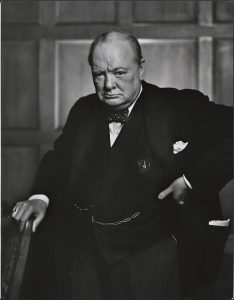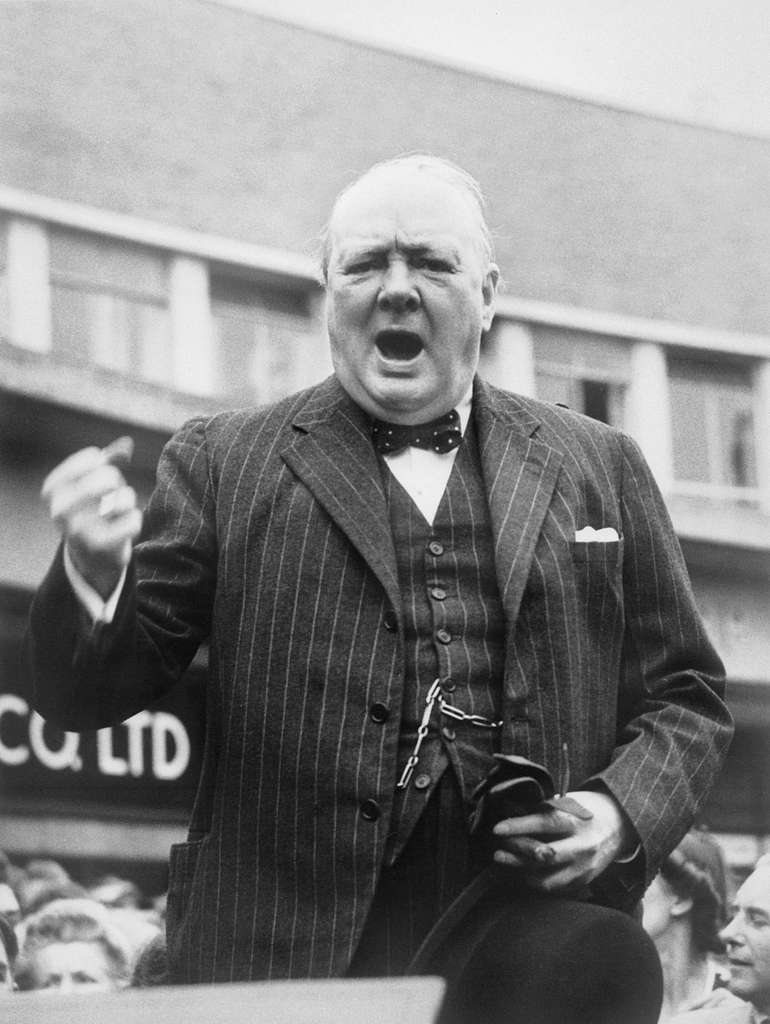Tyler Maxey’ s fascination with all things history began at an early age with a Presidential baseball that intrigued his interest of the faces he saw. Deeply connected to American history and many historic figures, Maxey has spent his whole life learning to connect the stories that have shaped the United States of America and abroad. This column aims to share those insights from Tyler Maxey, The History Buff.
While this column normally focuses on American history, I thought this time I would travel across the pond to find my subject material. One of the greatest historical figures of the 20th century is Winston Churchill. Recently, there has been much discussion about his legacy, and even his intentions, so I think it is important for us to examine one of the key points of his life, June 4, 1940. His story shows how God induces courage in people, especially in difficult situations.
Leading up to June of 1940, England was an exhausted nation. England had endured the First World War, suffered an economic depression, and was weary of more conflict. This attitude caused Churchill’s predecessor, Neville Chamberlain, to take the road of appeasement concerning the rising power of Nazi Germany and Adolf Hitler. Chamberlain had listened to his tired nation, deciding to let Germany violate the Treaty of Versailles and annex the surrounding countries of Germany. After failing to liberate Norway and the start of the invasion of France, Chamberlain resigned and Churchill was sworn in as Prime Minister. Churchill had a mixed military and political career and was seen as an unpredictable outsider within the British political system. The country was tired; their European allies were almost completely under Nazi control and the entire British Army was surrounded at Dunkirk.

Churchill was pressured by nearly everyone to negotiate peace with Hitler and prevent any further war. Germany wanted to fight a one-front war with Russia, and there was a thought that maybe he would leave England alone and focus elsewhere. Most people would have accepted their fate and resigned to the fact that there were no other options. However, Winston Churchill had an uncommon sense of courage.
This reminds me of a story in 1 Samuel 17. In 1 Samuel, the armies of Israel were at war with the armies of the Philistines. For 40 days, they had been threatened by Goliath the massive Philistine warrior. Goliath challenged their army, their manhood, and especially their God. The people were afraid. 1 Samuel 17:24 says, “When the men of Israel saw the man (Goliath), they fled from him and were very fearful.” This is similar to the British army stranded at Dunkirk.
David was likely around 16 years old when he arrived at the Philistine battlegrounds. He was sent by his father to bring supplies to his brothers, but what he found was a terrified Israelite army. David had courage in knowing that the battle belonged to God. It didn’t matter to David how big Goliath was, it didn’t matter how young David was, Goliath was defying the Lord and thus the Lord would defeat Goliath.
While everybody around him was cowering, David held strong and never wavered in his faith in God. David lays this out in 1 Samuel 17:3 saying, “The Lord who saved me from the paw of the lion and the paw of the bear, He will save me from the hand of this Philistine.” David tells Saul about an experience he had when he was younger when he rescued his sheep from predators. If God could help him in that situation, He would help him with Goliath. David’s courage didn’t rely on previous military experience, it didn’t rely on his age, it relied only on his faith in God.
I don’t know how much of Churchill’s courage was motivated by faith in God, but what was similar was his knowledge that someone had to stand up to the Nazis. Churchill had engineered a brave plan to rescue the stranded army at Dunkirk by using all available vessels (mostly civilian boats) to sail across the English channel and pick up the troops. It was at the end of this operation, on June 4, 1940, that Churchill addressed the British Parliament and emphatically stated, “We shall defend our Island, whatever the cost may be, we shall fight on the beaches, we shall fight on the landing grounds, we shall fight in the fields and the streets, we shall fight in the hills; we shall never surrender.”
Churchill knew what was right, and that doing the right thing takes resolve and courage. In a time when that was in short supply, he stepped to the front of the line and called the people to join him in the belief that good would win. As we know, England never surrendered and served as the gathering place for Allied Forces that would ultimately defeat the Nazis, ending World War II.
In the movie Braveheart, William Wallace tells Robert the Bruce, “But men don’t follow titles, they follow courage.” Robert the Bruce was a Scottish nobleman, and during that time, the nobles were supposed to lead the people. Wallace was reminding Bruce that what truly matters in leadership is courage. I believe Churchill embodied this principle, which is why he is such an inspiration to me.
As I consider the next steps in my life-graduating from high school and going away to college, feelings of anxiety and fear are beginning to creep in. The inspiration of Churchill and David gives me strength. Ultimately, I know my courage to do hard things comes from my faith that God is with me. I pray that the example of these two historical figures can also inspire others.
For more from The Feather visit Veterans Day Chapel 2024 and Column: A Student’s Guide to Saving.







Jonas • Nov 20, 2024 at 2:42 pm
Wow Tyler this was the greatest article I’ve read. You are the greatest writer I have read from. You have a humongous talent. Your articles always bring me so much joy.